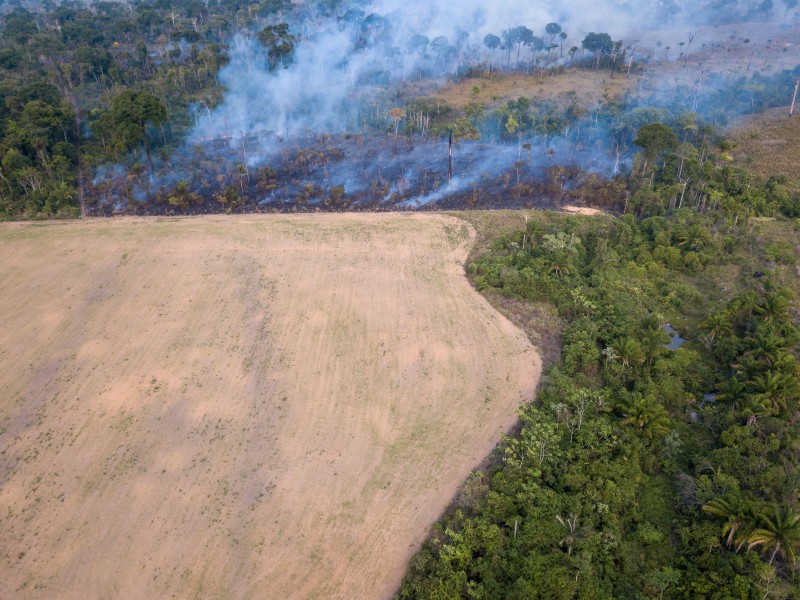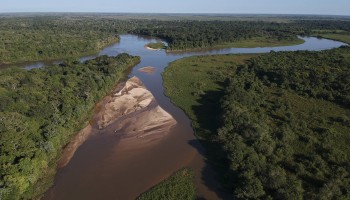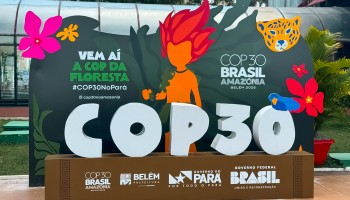Reported by
Luxury fashion houses including Coach, Chanel and Louis Vuitton are sourcing leather tied to illegal deforestation and the displacement of Indigenous communities in the Amazon, according to a new investigation that traces their supply chains from Brazil’s cattle pastures to Italian tanneries.
The report, published by the U.K.-based nonprofit Earthsight, found that two Italian tanneries supplying these high-end brands purchased hides from Brazilian slaughterhouses linked to ranches operating on illegally cleared forest and Indigenous land. Researchers used satellite imagery, shipping data, court records, and undercover work to trace the leather’s path, shedding light on a little-known route through which environmental crime enters luxury markets.
Central to the supply chain is Frigol, one of Brazil’s largest meatpackers, which Earthsight found had purchased more than 17,000 head of cattle from ranchers accused by federal prosecutors of illegally raising livestock on protected Indigenous territory in Pará state. Despite recent praise from Brazil’s Public Ministry for reaching “100% compliance” with environmental rules, the audit applied only to Frigol’s direct suppliers, not its full supply chain—a loophole that experts say allows “laundered” cattle to enter the market.
Obscuring the animals’ original source is what is known as “cattle laundering”, which OCCRP has previously investigated in the Brazilian state of Pará’s beef industry.
“The biggest flaw in cattle traceability in Pará is the lack of individual animal identification and transparency regarding livestock movements,” said Camila Trigueiro, an analyst at the Brazilian nonprofit Imazon. “Slaughterhouses only have information on the last farm the animal passed through... but they do not have access to the full history.”
A second key intermediary, Durlicouros—Pará’s top leather exporter to Europe and a buyer of hides from Frigol—was previously sued in Brazil for sourcing from farms fined for illegal deforestation. Court documents argued the company should be held liable for profiting from environmental crimes, even if it wasn’t directly involved.
From there, Earthsight found, the leather moved on to Italian tanneries and into the supply chains of some of the world’s most recognizable fashion brands. “When we became aware of the [Brazilian] investigations, the immediate question that arose was where the leather from these cattle was ending up,” said Lara Shirra White, a researcher at Earthsight.
It’s not the first time luxury brands have come under scrutiny for their environmental footprint. A 2021 study by Stand.earth linked more than 100 global brands—including fast fashion chains—to deforestation in the Amazon via their leather sourcing.
New EU regulations expected later this year will require companies to prove their products are deforestation-free. But lobbyists for Italian tanneries are already pushing for exemptions, raising questions about how strictly the rules will be enforced.
“The exposure of Europe’s leather supply chains to the deforestation and Indigenous land rights violations that have been connected to Frigol serve as a reminder of the need for the EU Deforestation Regulation,” White said.
The findings arrive just months before Brazil’s Pará state – ground zero for many of these deforestation-linked supply chains – hosts COP30, an annual United Nations summit where governments, NGO’s and the private sector meet to assess progress and determine strategies for combatting climate change.






